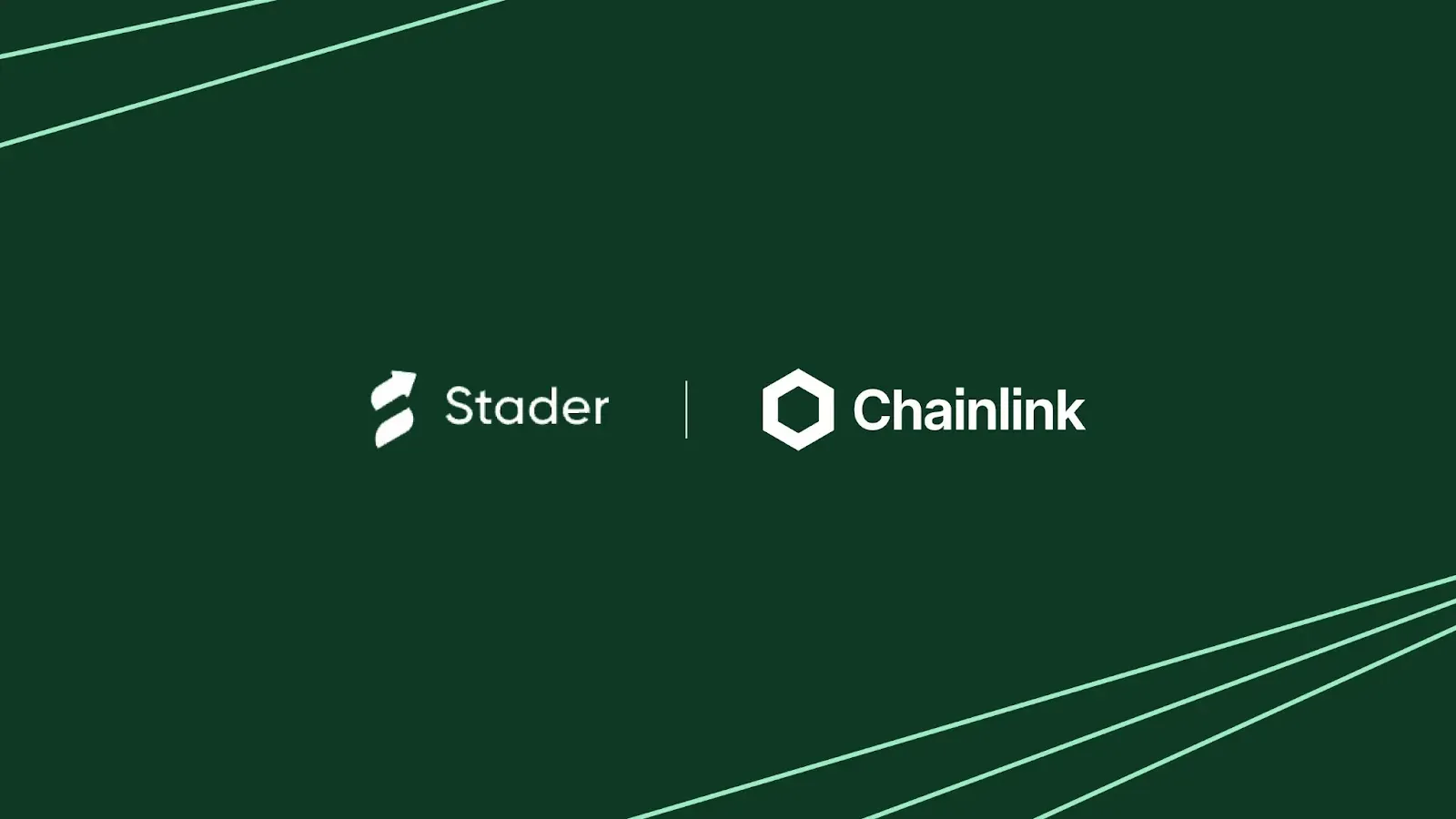Stader Integrates Chainlink CCIP To Unlock Secure Cross-Chain Token Transfers

We’re excited to announce that Stader has integrated Chainlink CCIP — the industry standard for secure cross-chain interoperability — across the Arbitrum, Ethereum, and Optimism mainnets. We’re leveraging CCIP to facilitate cross-chain transfers on our LST platform.
We selected CCIP as our preferred interoperability solution because Chainlink has a proven track record of maintaining the highest standard of security and reliability in the blockchain industry, with CCIP being the only interoperability solution achieving level-5 cross-chain security. Furthermore, CCIP is backed by the Risk Management Network — a separate, independent network that continually monitors and verifies cross-chain operations for suspicious activity. This additional layer of security is particularly important given historical industry exploits and the billions in user funds lost due to unreliable cross-chain infrastructure.
Thanks to its principle-driven approach, Chainlink has built one of the largest ecosystems in the blockchain industry and is being established as the industry-standard blockchain connectivity standard within capital markets. Connecting Stader to the Chainlink community and ecosystem offers a multitude of growth opportunities that help Stader get closer to its goals and increase ecosystem adoption.
Stader ensures robust security through continuous code reviews, regular external audits, and multi-sig admin accounts for contract parameter changes. In order to help secure the cross-chain LST platform, we needed access to a highly secure and reliable interoperability solution. After reviewing various solutions, we integrated Chainlink CCIP because it provides a multitude of important benefits and features, such as:
- Defense-in-depth security — CCIP’s consensus and interoperability layer is powered by Chainlink decentralized oracle networks, which have already secured tens of billions of dollars for smart contracts and enabled over $12 trillion in onchain transaction value. CCIP also features additional layers of protection and reliability via the Risk Management Network and Smart Execution.
- Simplified Token Transfers — CCIP features a plug-and-play solution consisting of audited token pool contracts that handle the complexity of burning and minting or locking and unlocking tokens across chains. CCIP token transfers also have additional security features like rate limits, and enable ecosystem partners to easily build new capabilities around a supported token via a single CCIP interface.
- Programmable Token Transfers — CCIP messages are programmable, meaning token transfers and arbitrary data transfers can be one atomic transaction. This enables instructions to be passed in the data payload regarding what to do with the tokens once they arrive at the destination chain.
- Extendable and future-proof — CCIP is built to support continuous updates, such as the integration of new blockchains, the introduction of advanced functionalities, and the addition of other defense-in-depth approaches to security. Thus, integrating CCIP eliminates future switching costs should new cross-chain functionalities be required.
“Industry-standard Chainlink CCIP enhances our LST platform’s capabilities. Its battle-tested security and reliability made it the ideal choice to enable secure cross-chain functionality. This integration helps strengthen Stader’s security and opens new avenues of growth and adoption for us within the DeFi ecosystem.” — Amitej, CEO and Founder at Stader Labs
About Stader
Stader is a non-custodial, smart contract-based staking platform designed to simplify the discovery and access of staking solutions. It provides essential staking middleware infrastructure for multiple Proof-of-Stake (PoS) networks, catering to retail crypto users, exchanges, and custodians. Stader’s liquid staking feature allows users to mint a token representing their staked assets, enabling participation in both network security and DeFi activities.